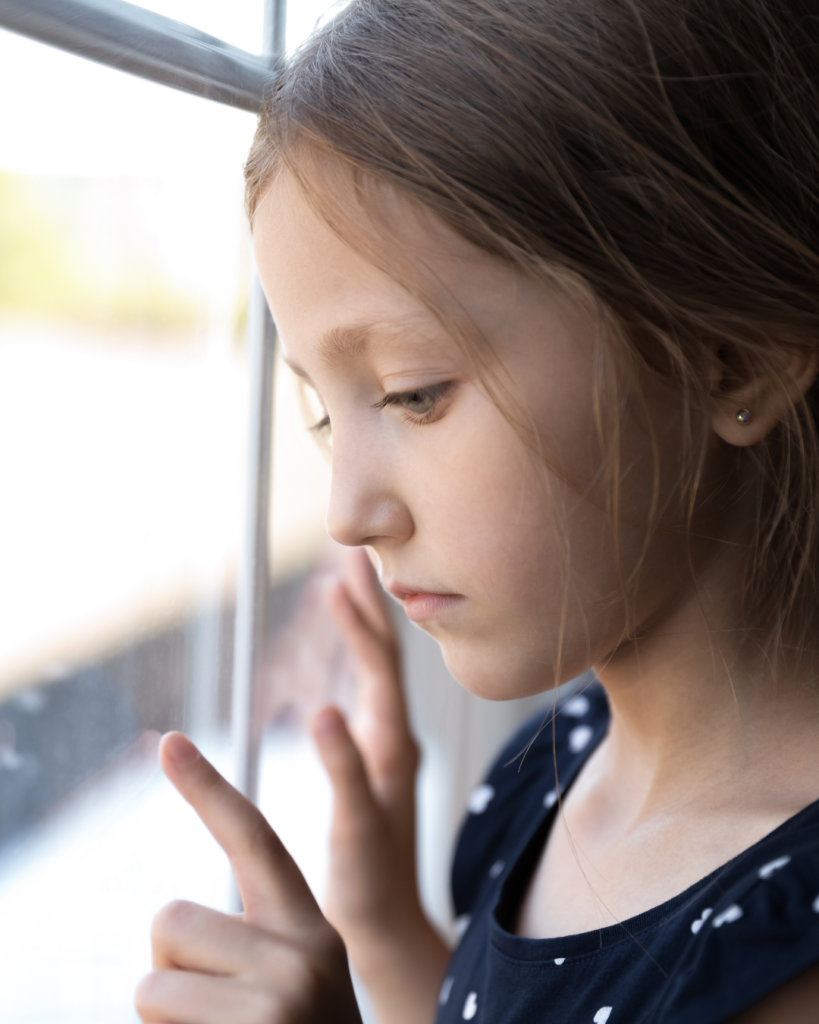What is Childhood Trauma?
Have you ever wondered if you have experienced childhood trauma? It may be a question lingering in your mind but you don’t feel like you have a clear answer. Traumatic experiences include more than experiences between a child and their parents. It can include extreme experiences that resulted in fear and confusion. This blog article will explain what childhood trauma is, describe the signs to look out for in both children and adults, show how it affects the brain, and discuss how therapy can help ease the symptoms of childhood trauma.

Here are some examples of childhood trauma:
- Psychological, physical, or sexual abuse
- Community or school violence
- Witnessing or experiencing domestic violence
- National disasters or terrorism
- Commercial sexual exploitation
- Sudden or violent loss of a loved one
- Refugee or war experience
- Military family-related stressors (e.g., deployment, parental loss or injury)
- Physical or sexual assault
- Neglect
- Serious accidents or life-threatening illness
Infants
Birth to 3 Years Old
- Eating and Sleep: Eating and sleep disturbances.
- Behavioral Signs: Clinging, experiencing separation anxiety, showing irritability, having difficulty soothing.
- Emotional and Play: Feeling passive and helpless, restricted mood and play, repetitive or post-traumatic play patterns.
- Development and Fears: Developmental regression, general fearfulness, new fears, easily startled.
- Communication and Social: Language delays, aggressive and sexualized behaviors.
- Trauma Responses: Discusses traumatic events and reacts strongly to reminders or triggers.
Young Children
3 to 6 Years Old
- Behavioral & Emotional: Avoidant, anxious, clingy, low frustration tolerance, helplessness, impulsivity, hyperactivity, irritability, sadness or depression.
- Physical & Health: General discomfort like headaches, physical symptoms without clear cause.
- Cognitive & Attention: Difficulty focusing, problem-solving, inattentive, prone to daydreaming or dissociation.
- Social Interaction: Poor peer relationships, issues with being too controlling or overly permissive.
- Developmental Concerns: Loss of recent developmental milestones, repetitive or post-traumatic play.
- Trauma Resonses: Talks about traumatic experiences, reacts to reminders or triggers.
Older Children
6 Years & Older
- Attachment Issues: Difficulty trusting others, feeling uncertain about others' reliability, social difficulties, isolation, trouble seeking help.
- Physical & Health: Problems with sensorimotor development, sensitivity to touch, unexplained medical issues, coordination and balance.
- Emotional Regulation: Challenges with managing emotions, difficulty describing feelings or internal experiences, trouble communicating needs.
- Behavioral Control: Poor impulse control, self-destructive behaviors, aggression, oppositional attitudes, excessive compliance, sleep and eating disturbances.
- Cognition: Attention difficulties, lack of curiosity, information processing issues, trouble with task completion, planning issues, learning delays, language development issues.
- Self-Concept: Unstable sense of self, poor body image, low self-esteem, feelings of shame and guilt.
Can therapy help with childhood trauma for adults?
Yes, talk therapy, cognitive behavioral therapy (CBT), and trauma-focused therapy are effective treatments and can help adults overcome their symptoms from childhood trauma. Mental health professionals, such as therapists and psychologists, can help people with problem-solving and people process painful events that may be associated with family members. Some common symptoms adults experience from childhood trauma include:
- Emotional dysregulation
- Eating disorder
- Health issues
- Depression
- Insomnia
- Anger
- Impulsivity
- Mood swings
- Childish reactions
- Dissociation
- Substance use
- Hypervigilance
- Flashbacks
- Attachment issues
- Insecure attachment style
- Unresponsiveness
- Fatigue
- Domestic violence
- Anxiety
- Relationship issues
- Physical symptoms
- Chronic pain
- Irritability
- Nightmares
- Continuously ruminating over the trauma
What can I expect from trauma-focused therapy?
Trauma-focused therapy helps people understand how traumatic events from their past affect their mental, emotional, physical, behavioral, and spiritual health. This type of therapy focuses on the deep connection between a person’s adult responses to experiences and their childhood traumatic events.
Example of How Trauma-Focused Therapy Works
Imagine someone named Sarah, who gets extremely anxious whenever she hears loud noises. This fear started because she grew up in a home where there were often loud arguments. Now, even the sound of a slamming door can make her heart race and cause her to panic.
In trauma-focused therapy, Sarah would work with a therapist to understand how her childhood experiences are connected to her fear of loud noises today. The therapist would help her revisit these past traumatic events in a safe and controlled environment. They would guide Sarah through the process of recognizing and expressing her feelings about those events, which she might not have fully dealt with at the time they occurred.
Together, they would also explore how her body reacts to loud noises now and why. The therapist might teach Sarah calming techniques or new ways to think about and respond to these triggers. Over time, by understanding the root cause of her anxiety and practicing new responses, Sarah can begin to feel less afraid and more in control when she hears loud noises.
This process helps Sarah not just manage her symptoms but also heal the emotional wounds tied to her early experiences, leading to a lasting change in how she feels and reacts.
Therapy for childhood trauma is important because it can heal old emotional wounds and change how a person responds to certain situations as an adult. By understanding and addressing the roots of their emotional and behavioral issues, people can improve their overall well-being and lead happier, healthier lives. Therapy provides the tools and support needed to make these changes, helping individuals move past their trauma and look forward to a brighter future.
